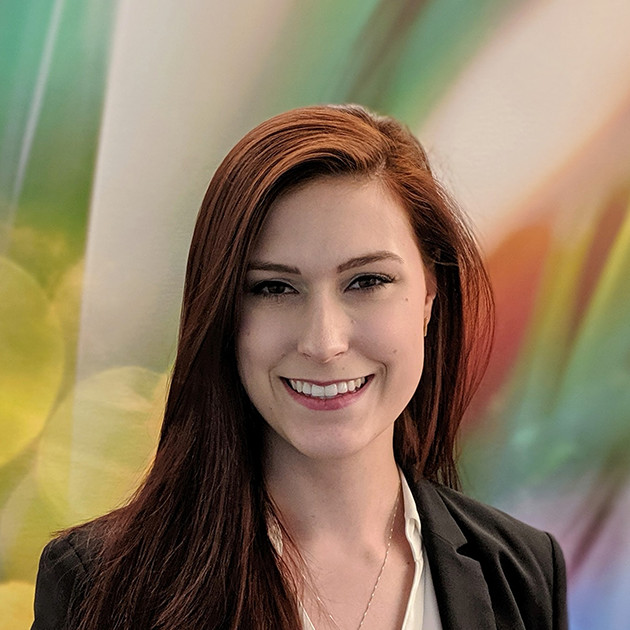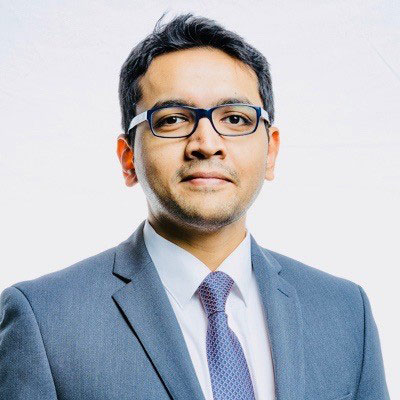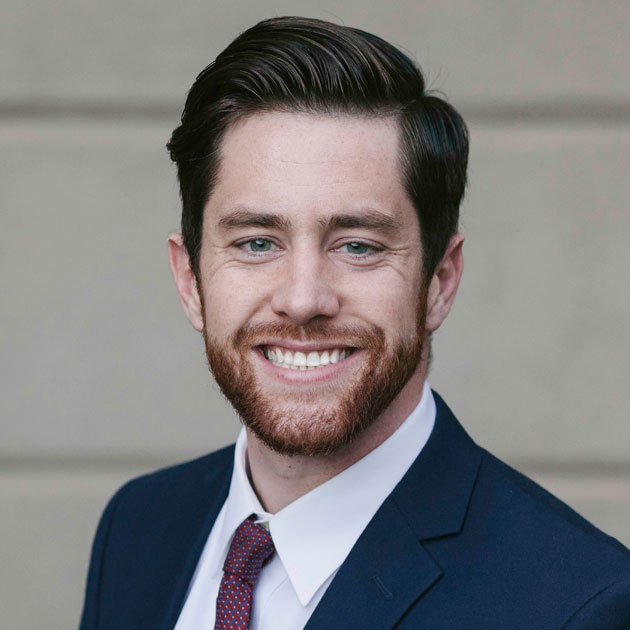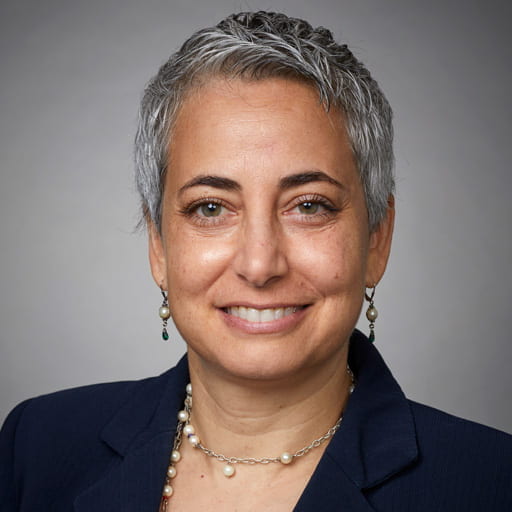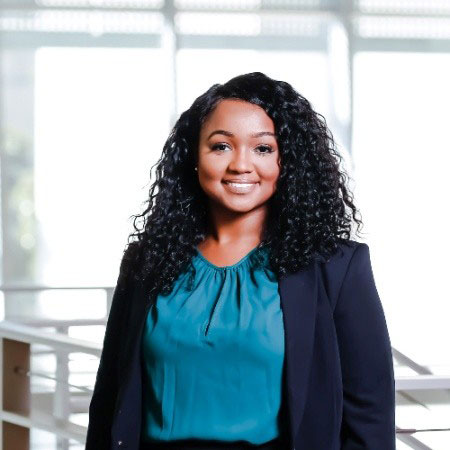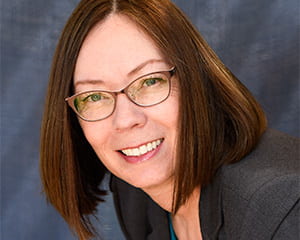
Laura Albright, MBA’16, is a management consulting lead analyst at RealFoundations, a professional services firm focused on the real estate industry. She joins host Dr. Monica Powell, senior associate dean and dean of graduate programs at the Naveen Jindal School of Management. The mother of two and a former party-truck franchisee with 25 years of experience decided to reinvent herself mid-career. She discusses with Powell how a Jindal School MBA helped her do that.
Transcripts
Introductory music plays up through Monica’s introduction.
[Jimmie] This is yet another MBA G.O.A.T. A podcast featuring conversations with the greatest of all-time MBA alumni from the Naveen Jindal School of Management at the University of Texas at Dallas. We are here to celebrate the outcomes of graduate management education and to identify remarkable examples of how the MBA program here at the Jindal School has transformed the lives of our alumni. Now, here’s Dr. Monica Powell, senior associate dean and graduate dean at the Jindal School. Take it away, Monica.
[Monica] Well, hello there! In today’s podcast we have an exceptional visitor. We have lots of people that come into the MBA program whose goal is to get into management consulting, and those individuals only have five years of work experience. Today we’re talking to somebody who came into the MBA program with 25 years of work experience and successfully landed in consulting, so we would like to welcome to the podcast today, Laura Albright. Welcome Laura,
[Laura] Thanks I’m really glad to be here.
[Monica] We are thrilled. You know this podcast is about us trying to tell the world about how great our MBA programs are, but it’s also about profiling really unique individuals who’ve maybe come to the MBA program with a very different background or a perspective that people wouldn’t typically think would be a program, and we want to reassure everyone that’s out there that the MBA world welcomes people of all backgrounds and diversity in terms of their work experience, and so we’re thrilled that you’re here today because you came to us at an atypical time in your life.
[Laura] That is correct.
[Monica] So you want to tell us a little bit about why you were kind of the atypical candidate and the full time MBA program?
[Laura] I think I probably had a lifetime of experience before I came here, I had gotten a bachelor’s degree, I, you know, had a couple of jobs I met and married my husband, we had a couple of kids, I kind of dropped out of the workforce for a little while. And when I returned to the workforce — I think, in hindsight mistakenly thought I didn’t have anything to offer, and that I would have a hard time picking up where I left off. And so I just did a few jobs here and there that fit in with, you know, raising the family and pursuing my interests that eventually led into purchasing a franchise and running a franchise business; and one of the best things we learned from that experience is that we’re not really cut out to be business owners. Um, and so …
[Monica] And that’s really hard work running a franchise. I mean that’s 24 hours a day,
[Laura] It’s 24 hours a day.
[Laura] Yeah, and after for five years, I mean we were ready for a break. And so, I kind of said I really want to do something else with my life. And so we sold the business. And I had a couple of options you know I could continue to do the kinds of things I was doing before, but I was totally bored with that. I could stay home. But that didn’t sound like fun either. And so it was just one of those light bulb moments like maybe now is the time for me to go back to school because I had thought about the MBA in the decades prior to me going back to school and it just was never the right time.
[Monica] So Laura, you know all about lead camp lead camp being the two weeks of intense boot camp for MBAs. So I’m curious the night before lead camp began. What were you thinking? What were you wanting to put in your book bag? What were you acutely aware of the night before?
[Laura] I think it’s what every student thinks about at least in the younger years is am I going to make any friends? Is anyone going to like me am? Am I going to be the one weirdo in the room? You know, I had binders that I put pictures in and things like that that you know I thought if I’m going to do this I’m really going to enjoy, so I mean, I drew pictures and put them in the front cover of binder and these were going to be for the, you know, Tuesday ,Thursday classes and this was going to be for the Monday, Wednesday classes, and so yeah I mean, I had a lot of fun, but I definitely experienced some of the same concerns and reservations that maybe all students do you know that night before school starts.
[Monica] And when you arrived at lead camp, we quickly throw you into the fire, and we make you try to find a classmate. We give you a few data points about a classmate and we tell you, go figure out who that is because you’re going to be introducing them to the class. And how did you feel about being asked to do that within five minutes of arrival? Do you still remember who you introduced?
[Laura] I don’t remember who I introduced, but I do remember the first person I met that day. And, uh, he was, you know, younger and just super nice and didn’t look at me like I was a 40-something-year old classmate and just kind of … So I’m looking for someone who, you know, blah blah, blah, blah, blah, and I’m like, it’s not me, you know, but I mean he was super nice and so that really set a good tone for me.
[Monica] So you knew pretty quickly within the first hour you knew. Hey, this is going to be good.
[Laura] This is going to be good.
[Monica] Terrific. And, your kids, by this time your children are grown up.
[Laura] Yeah, I mean they’re either just about to be out of high school or they’re out of high school.
[Monica] Wow. So in, in that classroom, in that full time MBA classroom, you know you had classmates who were newly married you had classmates that had a couple of small kids, you had classmates who were a long way from getting married. And, and then you add yourself.
[Laura] Yeah, I was the oldest one in my program although there were a couple of a couple of other ladies who were in the same decade as I was you know of life just, I was the oldest and it wasn’t as hard as I thought it was going to be. And I wasn’t, as, I didn’t stick out like a sore thumb like I thought I perhaps might.
[Monica] Well that sounds, that’s, we love hearing that, that students of all backgrounds can find their way into an MBA program here and can be successful and can feel like they belong. So that’s great. So Laura tell us about what is kind of the most memorable moment in the MBA program; you know sometimes memorable moments are joyful and sometimes they’re terrifying. So, which was yours?
[Laura] So it’s a small moment actually in time for, for, and it’s a joyful moment, I remember sitting in the MBA lounge with two other fantastic women, and we were a little frustrated and stressed over, and I don’t even remember now what topic it was, but there was a homework assignment we were tasked with, and we gotten our heads together to try to sit down and figure this out. And after a little while we just ended up in a bundle of giggles and a lot of the stress just sort of melted away and, and I, strangely, I reflect back on that, you know, periodically.
[Monica] Have you had an opportunity since you graduated a couple of years ago to reconnect with some of your classmates?
[Laura] Yeah, so I try to go to a lot of the MBA alumni events, not always in town for all of them, but I do like to attend and I did make some long-term friendships, from the program, and we still go out to dinner and hang out and so I really, really appreciate that.
[Monica] That’s an awesome takeaway. Yeah, it’s one of those value-added benefits. So, I imagine, and I do want to talk just a little bit about the fact that the franchise job that you had. You were sort of in the party truck business. I don’t think it was. That’s my, my label as opposed to the official label. But when you’ve been in a business like that you didn’t have any weekends, you didn’t have any evenings because you were really supporting individual party events at the location of the party that was what the franchise was about so can you share a little bit about what, what that job was that franchise?
[Laura] Yes so the official name of the franchise is Game Truck.
[Monica] Game Truck.
[Laura] Yes, and so it is a party, truck it’s a video game party truck. So, our bread and butter was the elementary school age kids, and so they’re going to have their birthday parties on Friday nights, Saturdays and maybe Sunday afternoons and so that was really our peak period, but throughout the week you know moms are planning birthday parties, so you know you’re answering the phone during typical business hours, and, so you know, I might have had some free time, but going back to, to the 24/7 thing that is just always weighing on you in the back of your mind. So.
[Monica] And you have to stop life in order to deal with business
[Laura] You do.
[Monica] You can never really plan for things. So to go from hauling around a bunch of party trucks and making a bunch of little kids happy to deciding you need to change the trajectory of your life, and get into an MBA program, then have the MBA experience. And now you are working in management consulting for a real estate consulting firm called Real Foundations. So it is possible for somebody with a couple of decades of experience, who comes out of the franchise business comes into a full-time MBA program with the average age being something different than your own age. And then, attacking a consulting job at a point in your life when most people don’t. So can you talk a little bit about the takeaway from the MBA program into a management consulting role, and what that is like at this particular place in your life?
[Laura] Yes, so the MBA program is really a direct result of owning the franchise. And what I mean by that is that although our franchise had like a marketing playbook, there was really a lot of decision making that needed to be done at a local level, according to your own way you wanted to run the business. And it was a huge challenge. And I don’t mean that in a bad way I don’t mean it was hard, and I hated it. It was hard, and I really enjoyed it.
[Monica] So there was a lot you didn’t know.
[Laura] That was why I think I’m well suited for what I’m doing now, you’re in a dark room, and you don’t know where the door is so you’re feeling around in the dark just trying to figure your way through it. I experienced that a lot now, in my career, I mean we have frameworks we have, you know, experience within the firm people I can tap, but sometimes there’s something that’s put in your lap, and you need to take some initiative to figure it out. And so the franchise led to the MBA, because it was a challenge, it was another mountain to climb. I kind of fell into the consulting part I didn’t realize that’s what I wanted to do but in terms of the kinds of experiences I was interested in having post MBA. This checks, a lot of boxes for me and yeah sometimes it’s hard. Some days are tiring, like, I wish I already knew how to do this. But all in all, this is what I’ve chosen, and I do thrive on it.
[Monica] You know it’s interesting we tell prospective students all the time when they’re in that, you know, looking glass phase of trying to figure out what do they want to be in the next evolution of their life. And we tell them that the MBA is all about becoming a problem engineer, that it’s not alone about just solving a problem, it’s about identifying the right problem to solve correctly and to measure the success of the outcome of it. And so in consulting, you’re given somebody else’s problems, and you’re having to apply that procedure to identify what is the root cause of whatever this is. And how am I going to use these more integrated skills that an MBA gives you to try and figure that out. Was it was that difficult at the beginning? The MBA is kind of all about that, you know, the MBA is all about practicing that skill as you’re moving through the curriculum.
[Laura] I agree. I would not have related that at the beginning of the MBA program to what I’m doing now. I think in some ways, it wasn’t perhaps quite that difficult to get through it , Not to say I didn’t have challenges ‘cause I had challenges, but I absolutely believe it was a training ground and I could not have gotten from point A to point C, without first going to point B, which is the MBA program. It refreshed my skills. It made me start thinking differently about things, and definitely prepared me for the next step.
(Music begins)
[Jimmie]This episode is brought to you by the UT Dallas MBA program top ranked nationally and in Texas. The UT Dallas MBA combines a robust core with 13 concentrations. You have an option to add a second master’s degree of your choice that include five STEM designated programs. The MBA program has full time, part time online and other formats. They give you flexibility to fit your MBA education into your busy schedule. The skills and training you will receive are what top employers are looking for. For more information, visit us online at Jindal got utdallas.edu/MBA.
(Music continues in the back ground.)
[Monica] And when you look back on the MBA. Do you feel like you had to acquire the confidence, or did the MBA, give you the confidence?
[Laura] That’s a really good question. I set a goal for myself; when I decided I wanted to get an MBA, I did not feel like that was just going to be easy breezy. It had been more than 25 years since I’d had my graduation from the undergrad. So, I knew, have not having used a lot of skills that I acquired as an 18- 19-, you know, 20- year old in a number of years that that I had a lot of work to do.
[Monica] Did you acquire the confidence?
[Laura] So when I made the decision to pursue the degree, I felt like I had a tiger in my tank for the first time in my life, and I felt I felt like nothing was going to stop me, even though I was a bit fearful, I guess of failing. It just made me work that much harder. So, the MBA degree really proved to me that I could set my mind. Or I could do anything that I set my mind to. So I guess it was both.
[Monica] So, I guess it was really both.
[Laura] It was really both.
[Monica] If you think back to the experience in the classroom, and the value of your classmates in adding to the conversation, whatever the topic of the day happens to be. Do you have any, you know, interesting reflections on conversations in the class that just really, that you use today that you reflect back on that you think about that you apply?
[Laura] Not so much that but I think what I really took away from the experience in the classroom, was that diversity matters. You need people from different backgrounds, different ages, different experience to contribute to the conversation. And I think that’s a very important characteristics for organizations going forward to recognize.
[Monica] So talk a little bit about the diversity of your classmates.
[Laura] Well, young and older. And, you know, there, there were American citizens, US citizens, there were people from China that I met, people from Vietnam, people from India and Pakistan, and probably some, I’m forgetting, but just, you know, the level of experience that many of these people had was astonishing. And the things that they had already accomplished in their life before they got there was really eye opening as well.
[Monica] You know most people don’t think about making an investment in 18-month program when they’ve had a couple of decades of experience both work and just running a household, raising kids being, being in a relationship, but it takes a lot of courage to say okay well I’m going to go and compete with people that are on average age 29 years of age and use that to actually give myself another runway to a career. So now that you have this brand new runway which you’ve been on for a couple of years now, where do you see yourself going from that I mean you’ve kind of extended your runway and in a big way? So, where are you going to go from where you are right now? I mean, you have a couple of years of experience of consulting underneath your belt. Do you see yourself staying in consulting long term, do you see yourself transforming into a specialist in the area of consulting, what do you, how do you see that coming out?
[Laura] Well, so far, I haven’t really specialized in anything, I’m kind of a utility player at this point. I just go where they tell me to go.
[Both] laughing….
[Monica] What every good MBA should do.
[Laura] But, you know, one of the great things about the career that I’m currently in is that there is a path forward or upward, whichever way you want to look at it, take one of my prior jobs for instance in in a medical office. You’re either administrative support, you’re a medical assistant or you’re the doctor. I mean if you’re in an administrative role which I was, where’s your path forward, where’s your path upward, you need to change your career. So, at least now where I’m at, I can see places where I can go and develop knowledge that I’m interested in developing. So, I don’t see myself leaving this field, although I am an opportunist, I mean, if something falls in my lap or, you know, something blows by I might. I don’t know what I’ll do. At that point, but I always do consider those opportunities.
[Monica] Do you see yourself ever returning to the world of entrepreneurship?
[Laura] No.
[Both] Laughing….
[Laura] I absolutely believe you must have a passion for that. And that you may succeed, as we did I mean we were successful,
[Monica] Exhausted.
[Laura] At but, but exhausted, and I think the passion that people have for entrepreneurship, really can take them much farther, they kind of, you know, can overlook the exhaustion, much longer than someone who’s not totally passionate about what they’re doing and that’s always My advice for anyone that, that is, you know, interested in starting their own businesses, you need to be passionate about it
[Monica] In what you do in management consulting, what is the thing that you come back to, in your case, you may have loved it, maybe didn’t hate it, but what is your go-to skill that you go back to,
[Laura] I don’t know, I feel like I survive on my wits.
[Both] laughing….
[Laura] So while I learned things. There’s not a good answer to that question. And I’m so you know every time I start a new project. It maybe territory I’ve covered before, that’s happened once or twice now, but the client’s a different client, and the topic may be a different topic and so while I may know the mechanics of how to do something it’s always going to be different so I can’t think yet where I’ve had to go back to accounting or finance, maybe organizational development. That’s probably my best answer is, organizational development.
[Monica] Yeah, we all need to stick to that one, you know the, the market is telling us that there are shifts in interest in the MBA program. And as more and more people enter the workforce and we have this huge population of people that are going to be leaving the workforce so now those are getting filled in by millennials who will climb the corporate ladder. And one of the things that we hear often from millennials, they sort of look at the MBA and say, well, you know, I’m not an MBA type I want to have, I really want to. I don’t want to be a slave to money. I want to have the career that, that I want to have but I want to have it on my own terms. So you’re, you’re in consulting, and MBAs want to go into consulting they see that as a sexy destination for where the MBA will lead. They’re going to travel they’re going to have all these great clients, they’re going to have this wide portfolio of different problems. They’re going to have a lot of adventure and, and so, that seems much more attractive than you know going to a corporation where they’re going to be in a job working in an industry in a company for the company’s objectives. So what kind of advice would you give to a millennial, who, who maybe thinks that the MBA isn’t worth the investment or the time in terms of the impact that it would have potentially on their career?
[Laura] So I haven’t met anybody that’s been like, Oh you have an MBA that’s so yesterday.
[Monica] chuckle…
[Laura] I actually have had, you know anyone that knows about it there’s a lot of deference to it, there’s a lot of respect around the achievement. I think the great thing about the MBA is the exposure to a number of different areas of business like accounting, like finance, like statistics, like organizational development and corporate strategy. That’s not something you’re going to get when you’re pursuing a master’s degree in finance or accounting. It allows you to at least begin to understand the language that’s being spoken in meetings if you happen to be you know invited to a meeting, that’s a couple of levels above your paygrade, you might actually understand what people are talking about in that room. Whereas, if you hadn’t had the exposure of the MBA, you might sit there, you know, sort of distractedly wondering about what’s going on, on Facebook. So I really think there’s a huge value in it if you’re interested in succeeding in business.
[Monica] So from your vantage point, it is still highly valued in the workplace.
[Laura] Yes.
[Monica] So well worth the time, energy and the investment.
[Laura] It was for me.
[Both] laughing….
[Monica] So, so if you were gonna, if you were gonna to give three pieces of advice to any individual who happens to be as seasoned as you were from an experience perspective about getting ready to actually do this — I mean it’s a lot to think about it, but it’s even bigger to actually do it. So, what three pieces of advice would you give to somebody to encourage them not to step back and not to fail to act on the desire to open up another career runway?
[Laura] I think what’s important for people to, to realize is that it does take a commitment. It’s a large time commitment, so I know you know MBA programs are offering executive schedules nighttime schedules full-time schedules like what I did. One of the things that I did was just sort of put my spouse on notice and said, and said you know I’m going to be heads down on this for you know 16 months. And these are the things I’d like to transition, or transition to you or share. And he was supportive. So one of the things that’s also important is getting the support of the people in your house for you to go do this because you are going to be missed during your time in the program. One piece of advice I would tell people is if you’ve got you know a few years of experience under your belt just realize that there’s significant knowledge you can bring to the table for those 28- and 29- year olds who are in the classroom with you.
[Monica] I think the first piece of advice that you gave was really excellent that you that you need a support team, if you’re going to be in your position in life, then number one you need a support team. Number two, you need to realize that you can make a contribution to classmates that might be very different than you they’re going through this for a completely different reason in their life. So what would be the third piece of advice that you might offer? I mean, how did you feel about grades were you very OCD about grades or so you really you were after the A’s right?
[Laura] Yes, and maybe perhaps that was just me trying to prove to myself that I could do this in my undergrad, I wasn’t at all focused on grades. I mean I did fine but I wanted to do better. And so yes, one of the goals that I set for myself was achieving a certain overall GPA, which fortunately I did, and graduated with honors. But I think goal setting is an important piece of advice if you’re going to go into the program, think about, you know, some of the goals that you would like to achieve during your time there because the time goes by very quickly. You know, maybe each day is long and hard but when you are, you know, a week away from graduation, you are going to wonder where all the time went. So try to appreciate the time that that you had and definitely set goals.
[Monica] Yeah, students tell us all the time that the MBA experience is a blink. It just goes by very rapidly well. Well, Laura you’ve done a lot, and you’ve made us very proud to come in being that nontraditional student in a full-time program. We have a lot of nontraditional students in our evening MBA and our Executive MBA and our online MBA. But you made the choice to go into a full time environment and make , a you know, a 16- to 18-month commitment and get it all done at once, which is impressive. We’re very proud of what you’ve done; we’re delighted that you would come and spend some time with us on the podcast today. We look forward to sharing in the continued success of your career and we plan to continue to take full credit for all of those achievements.
[Laura] laughing….
[Monica] So we wish you the very best, and we thank you for being here today.
[Laura] Thank you so much. I’m definitely an evangelist in the program.
[Monica] Well, we appreciate that. Thank you Laura.
[Laura] Thank you.
(Music begins)
[Monica] Thank you so much for listening to today’s podcast. I hope that you were inspired by the words you heard from one of our greatest of all time, MBA G.O.A.T.s. If you were inspired to think about getting an MBA degree, I hope that you will be in touch with us. Give us a call, drop us an email, hop on our website. Be in touch with us so that we can help you make a difference in your future. We look forward to hearing from you.
[Jimmie] Thanks for listening to this episode of yet another MBA G.O.A.T. podcast. Join us online at mbagoat.com to find episode notes, links and more. Be sure to subscribe to yet another MBA G.O.A.T. podcast on Apple Podcasts or your favorite podcasting app. If you like what you hear, please leave us a five-star review. That will help spread the word about the podcast and the Jindal School’s MBA programs. To learn more about the Jindal School’s MBA program, go to jindal.utdallas.edu/mba
(Music continues)

